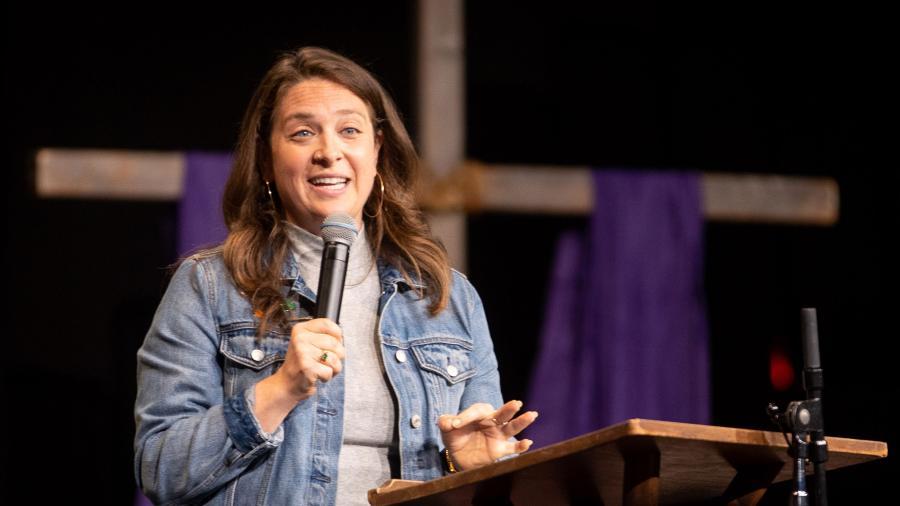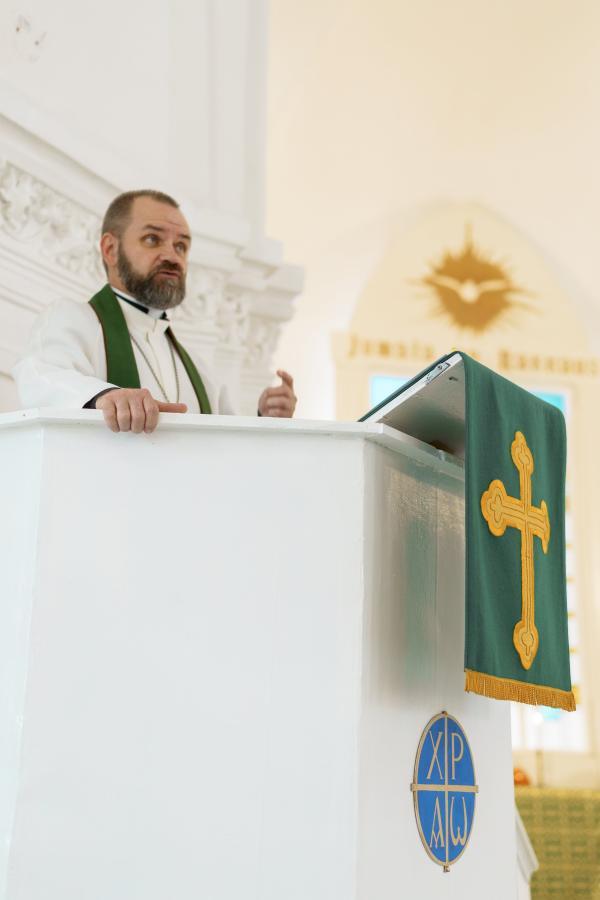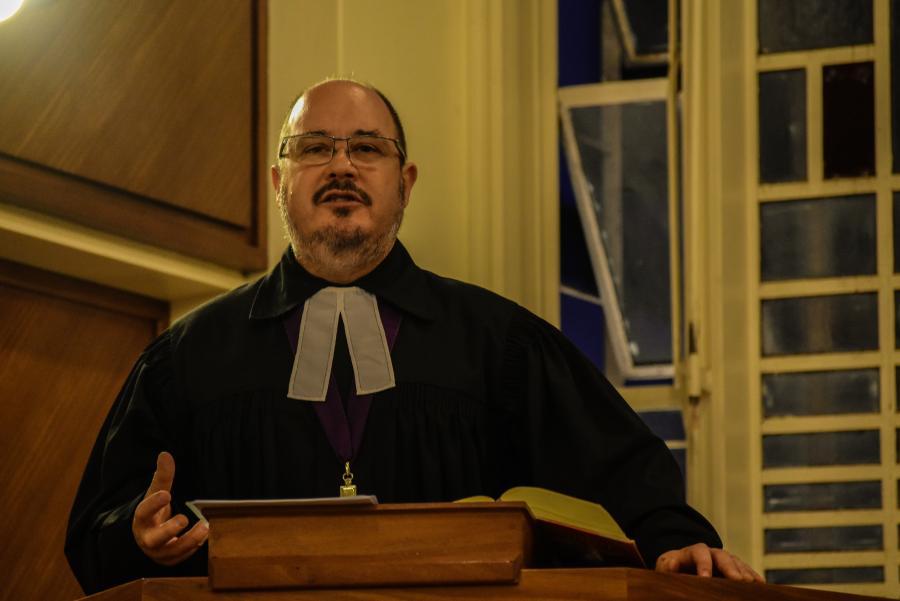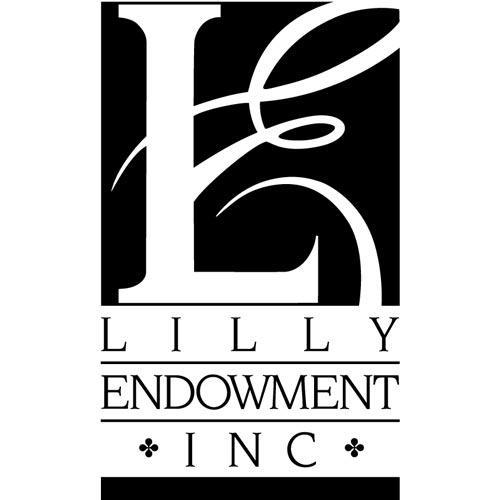Westmont News
Program Explores Meaning of Preaching

By
Scott Craig
Lilly Endowment Inc. has awarded Westmont College a $1.25 million grant to create a unique program exploring the meaning and value of in-person Christian preaching. At a time when much communication takes place online, remotely and impersonally, the Incarnational Preaching Project will invite active and aspiring preachers to investigate the value of preaching live to a church community. Westmont’s Gaede Institute for the Liberal Arts expects to launch the program in spring 2025.

Aaron Sizer, Gaede Institute director of academic and congregational integration, says Christian theology depends on real human connection. “Christianity asserts, quite distinctively, that God became incarnate, became human,” he says. “God doesn’t ask us to think our way up to heaven but meets us in the tangible stuff of human life. That should inform everything we do in the church, especially our preaching.”
Westmont’s project will gather pastors, liberal arts professors and others to think together about how incarnational preaching comes alive in particular communities. Rather than focusing on the development of better technical skills, as many preaching programs already do, this project will explore the people, relationships, needs and challenges that make preaching meaningful.

“Westmont lives and breathes relational learning,” says President Gayle D. Beebe. “With support from Lilly Endowment, we’re excited to expand that work to make our Christian liberal arts resources directly available to clergy and congregations.”
The Incarnational Preaching Project is funded through Lilly Endowment’s Compelling Preaching Initiative, which fosters and supports preaching that inspires, encourages and guides people to know and love God and to live out their Christian faith more fully.
Lilly Endowment awarded grants to 81 organizations that reflect the diversity of Christianity in the United States, including affiliates of mainline Protestant, evangelical, Catholic, Orthodox, Anabaptist and Pentecostal communities. Many of the organizations are rooted in the Black church and in Hispanic and Asian American Christian traditions.

“Throughout history, preachers have often needed to adapt their preaching practices to engage new generations of hearers more effectively,” said Christopher L. Coble, Lilly Endowment’s vice president for religion. “We are pleased that the organizations receiving grants in this initiative will help pastors and others in ministry engage in the kinds of preaching needed today to ensure that the Gospel message is heard and accessible for all audiences.”
Lilly Endowment launched the Compelling Preaching Initiative in 2022 because of its interest in supporting projects that nurture the religious lives of individuals and families and foster the growth and vitality of Christian congregations in the United States.
Through its Gaede Institute, Westmont continues to cultivate relationships with faith communities across the broad spectrum of ecclesial traditions. The Gaede Institute’s Trailhead, Frontiers, Thriving Communities and Young Adult Leadership Lab programs offer resources and relational learning for high school youth, pastors, congregations and young adults.

About Lilly Endowment Inc.
Lilly Endowment Inc. is a private foundation created in 1937 by J.K. Lilly Sr. and his sons Eli and J.K. Jr. through gifts of stock in their pharmaceutical business, Eli Lilly and Company. While those gifts remain the financial bedrock of the Endowment, it is a separate entity from the company, with a distinct governing board, staff and location. In keeping with the founders’ wishes, the Endowment supports the causes of community development, education and religion and maintains a special commitment to its hometown, Indianapolis, and home state, Indiana. A principal aim of the Endowment’s religion grantmaking is to deepen and enrich the lives of Christians in the United States, primarily by seeking out and supporting efforts that enhance the vitality of congregations and strengthen the pastoral and lay leadership of Christian communities. The Endowment also seeks to improve public understanding of diverse religious traditions by supporting fair and accurate portrayals of the role religion plays in the United States and across the globe.